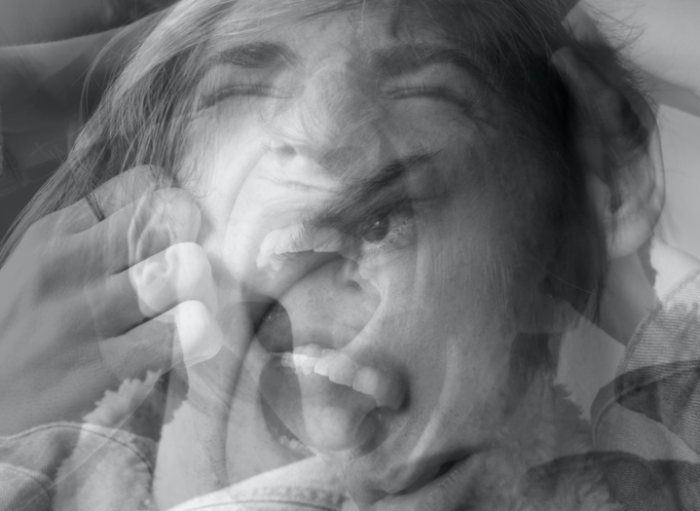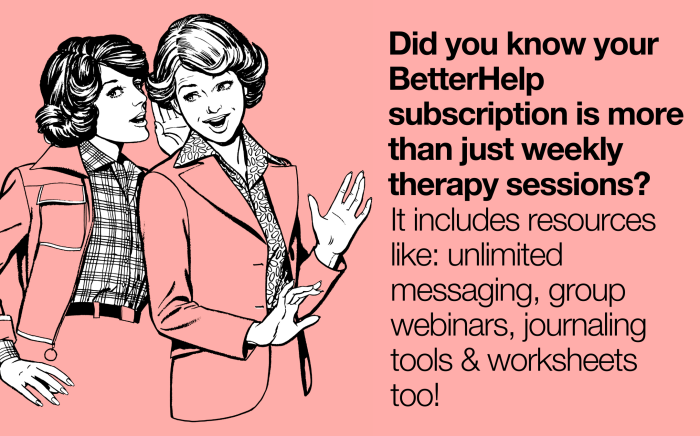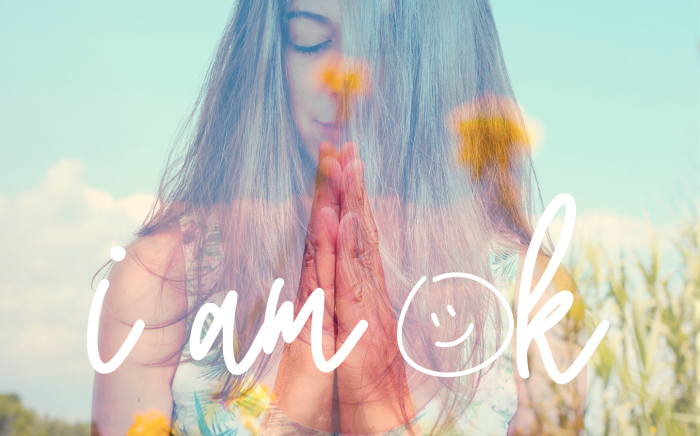{Partner}

This is a Sponsored article written in partnership with BetterHelp.com. They’re dedicated to helping folks get easier, more affordable access to mental healthcare, and we’re proud to work with them. ~ ed.
It’s the end of the world and everything—literally everything—is wrong.
I feel my heartbeat race and the tingly burn crawling up my chest bone. My shoulders tense and curl inward, and my breath quickens as I try to keep my cool. I sense myself leaning over the precipice of a downward spiral. Try as I may to stop it, I am pushed over my edge.
The event that served as a shove? A downed computer system at urgent care that inhibited me from seeing a doctor.
I knew my reaction was irrational. I could sense I was triggered, but couldn’t pinpoint why. The spiral deepened, and suddenly I was dwelling on feelings of unworthiness and thoughts of fleeing my relationship.
I tried not to hurl my insecurity at my partner as I walked in the door of our apartment. I tried to hide all the heavy stuff that could easily ruin a last evening together for a while. I avoided eye contact with him and steered clear of his touch. I lay on the couch with my eyes covered and breathed.
Once I’d slowed my system and racing thoughts, the question came to me:
WTF is this trigger?
When I first started seeing a therapist with BetterHelp, an app-based mental healthcare service that pairs you with a therapist and a load of tools to get you through, the answer to the question “What brings you here” was a three-paragraph response best summed up in one word: “everything!”
I didn’t know where to even start getting back into mental balance.
After a few months of therapy, I felt I was ready to take some space to figure out what I really wanted to hone in on.
After several months away, it became clear to me where I needed psychological support to supplement the life coaching I’ve been receiving. There were potholes on my road to success that needed filling with something a little more concrete.
So, back I went to BetterHelp. But, this time, I had a clear therapeutic path: I wanted to understand what triggers my racing thoughts and fill my mental toolbox with skills to self-soothe when I start to rage.
My therapist jumped right in.
The word is “triggered.” Don’t wear it out.
We say we’re triggered on a daily basis, but what does that really mean?
When we’re psychologically triggered, we reactivate the symptoms of a traumatic event.
Yep. There’s a big difference between being uncomfortable or offended and re-experiencing trauma.
Looking back at my downward urgent care spiral, I can see how it all went down:
I felt dismissed by the urgent care “failing” to honor my appointment. My tired mind and under-the-weather body was more prone to re-experiencing trauma, so I began searching for evidence to validate that I was not important. I found a conversation between my partner and me to pin to the target and, pop, trigger two was pulled.
His work trip, coupled with my feeling sickly, triggered the re-opening of a chasmic childhood abandonment wound. The story I told myself became that his leaving might be forever. I’d wasted my “last moments” with my partner in a doctor’s office where I didn’t even get to show care for myself by finally tending to my health.
Not only was I going to be abandoned by my lover, I also wasn’t important enough for my own damn care—or anyone else’s for that matter. I was unimportant and destined to be forever alone until I could love myself and find myself worthy.
All that thinking happened in a matter of about 5 to 10 minutes. Damn! A bit much for an urgent care technical glitch, eh?
Over-the-top reactions are common in traumatized people. Their strong reaction seems out of proportion to what’s happening, but that’s because they’re reliving a trauma (1).
So, how do we slow the bullet-fast reaction of being triggered?
BetterHelp and my therapist Jaimie had some excellent resources for that.
The two “buckets” of triggers
To identify triggers, we have to examine how we feel in response to external causes. Here’s a good start: begin to decipher which triggers are internal or external, and what might be going on behind them.
Internal Triggers
These are the emotional experiences connected to being triggered—reactions like anxiety and anger (2). Internal triggers are all about re-experiencing the feeling we felt during traumatic moments.
Anxiety triggers manifest as feelings of worry, stress, and insecurity, whereas anger triggers might manifest in a racing heart and verbal or physical outbursts.
Look for feelings of invisibility, dismissal, being ghosted, utter loneliness, having been “used,” or boundary violation. Those are the realms of internal triggers.
Keep an eye out, too, for rumination, or dwelling on pain or sorrow from an event. Rumination can impair how our emotions respond to an event or circumstance—especially if we have a tendency to negatively exaggerate situations in our mind.
External Triggers
These are the environmental details that resurface our trauma.
When we burn our hand on a stove, red-hot things forever remind us of the pain and our trauma response forever aims to keep us clear of touching red-hot items. External triggers are similar in the way that, during trauma, the brain records the tactile elements, scents, sights, tastes, and sounds during the incident, and keeps it all “on file” to help us avoid experiencing that again.
When similar elements combine in later moments and touch on a past trauma, it can feel a bit ominous—it’s the worst kind of déjà vu.
External triggers can be found if we look for moments when we’ve felt controlled or smothered, uncomfortable with a situation, person, or place, or have a sense that danger is lurking.
While those feelings are technically internal triggers, noticing their presence helps to identify external triggers that are present and contributing to our feeling that way.
Life changes such as new medical diagnoses, a change in finances, job loss, weight fluctuation, poor eating, substance overuse, and even lack of sleep or sex are also external factors that can trigger us or leave us more susceptible to being triggered.
See yourself somewhere above? Fear not. While it sucks to be triggered, there are effective ways to release.
Here are six psych tips to reduce our triggers:
1. Note trigger patterns & find your stress level.
Noting trigger patterns can help us label what type of trigger we’re experiencing, which, when discussed with a therapist like those at BetterHelp, can help us find some of the best remedies to remove our finger from the trigger of the specific trauma Nerf we reach for most often.
Estimate where you are on this scale:
>> Acute Stress
Acute stress is usually quick and stimulates a fight, flight, freeze, or fawn response. Think things like a missed work meeting or an argument with a family member.
>> Episodic Acute Stress
This is when we begin to constantly experience episodes of acute stress, and it can indicate a bigger issue which we’ve yet to address.
>> Chronic Stress
The more dangerous step after episodic acute stress. This is when we always feel under pressure and on edge, regardless of the circumstances in our lives (3).
2. Incorporate stress management techniques into daily life (including more sleep).
It’s hard to control our thoughts when we can’t relax. Controlled breathing is an important way to manage, to self-soothe, these responses.
Deep breathing, meditation, yoga, or any form of movement can help us regulate our nervous system through introducing steady breath into our stressed-out system while distracting us from the stressors and triggers our mind is prone to focusing on.
It can also become a mood-boosting hobby that contributes to better quality rest—both of which give us a leg up in safeguarding against triggers.
Try Box Breathing
>> Breathe in for a count of four seconds.
>> Hold at the top of the breath for four seconds.
>> Breathe out for a count of four seconds.
>> Hold at the bottom of the breath for four seconds.
>> Repeat several times.
3. Cognitive Distancing
My triggered go-to behavior is to convince myself that the worst-case scenario is a reality. Pausing and practicing cognitive distancing can help us recognize positive alternative scenarios when assessing situations. (4)
Look at the “Evidence”
Imagine the best outcome. Imagine a middle outcome. Do you have any evidence to support the best-case being real? The neutral? The worst? More often than not, the middle ground is where it’s at.
4. Mantra
Research shows that repeating a mantra can slow activity in specific parts of the brain, help people stop replaying troubling images about the past, and reduce worry about the future.
Pick a Mantra
Try something like “This, too, shall pass.” or “Everything is OK. I am OK.” (4)
5. Focus on the Present
Focusing on the present controls racing thoughts. Professional counselors like the ones at BetterHelp can help us learn to release negative images of the past and find positive things to focus on in the present (4). Ahhh! Hello centering!
Count Objects
My therapist, Jaimie, encouraged me to practice this technique regularly:
>> Look around the room for a shape that isn’t too abundant, but could be counted without overwhelm.
>> Count them.
6. Write it Down
Writing focuses the mind and reduces the power that racing thoughts have over us. It also allows us to organize chaotic mental images and feel a greater sense of comfort and control (4).
Set a Timer.
Set a timer for five minutes and write everything that comes to mind. Don’t stop, even if it’s necessary to repeat the same word for 30 seconds until another thought comes. Just release it from the brain and onto the paper.
Not sure where to start? Understandable; it can be a challenge to be kind to people when they’re not kind to us—that’s no different when it comes to our minds when we perceive them to be lashing out.
When our triggered mind calls out for help, sometimes it’s best to turn to the professionals to help us identify, label, and discover treatments to help our minds feel safe.
When I need that extra boost, BetterHelp is where I turn. It’s where I go to see how far I’ve come in such little time. It’s where I go for tools and resources to help me through.
BetterHelp is where I go to offer myself a brief repose. May you, too, offer yourself that kindness.
~
Resources:
1, https://psychcentral.com/lib/what-is-a-trigger
2, https://integrativepsych.co/new-blog/common-anxiety-triggers
3. https://www.betterhelp.com/advice/stress/three-types-of-stress/
4. https://www.betterhelp.com/advice/bipolar/how-can-i-control-racing-thoughts-and-what-triggers-them/
~
IMAGE: (COVER) CALLUM SKELTON/UNSPLASH
IMAGE: (IMG 1) ITALO MELO/PEXELS
IMAGE: (IMG 2) CREATAS/CANVA
IMAGE: (IMG 3) CAROL OLIVER/UNSPLASH
IMAGE: (IMG 4) JUAN MOYANO/CANVA
AUTHOR: MARISA ZOCCO





This account does not have permission to comment on Elephant Journal.
Contact support with questions.